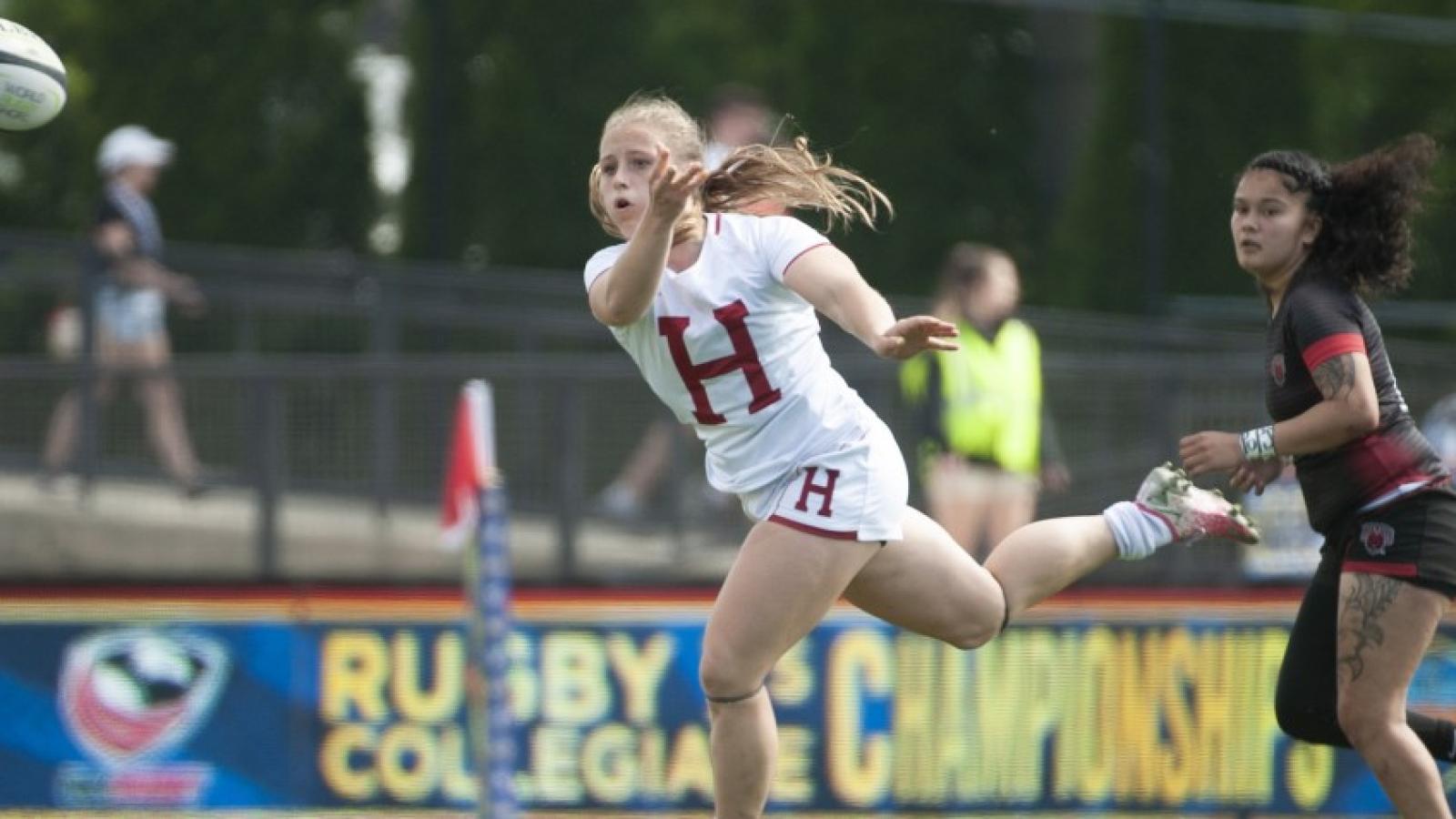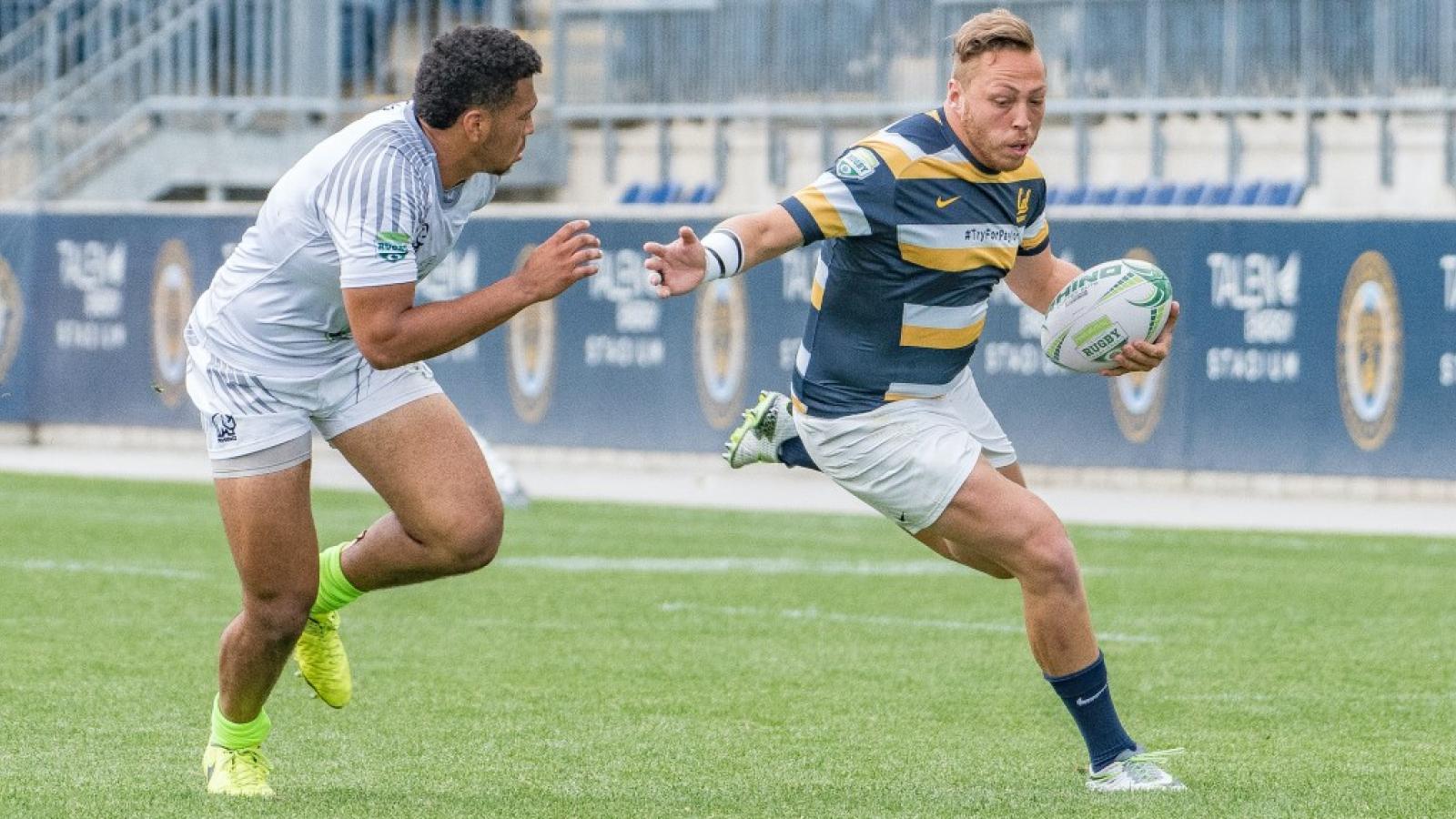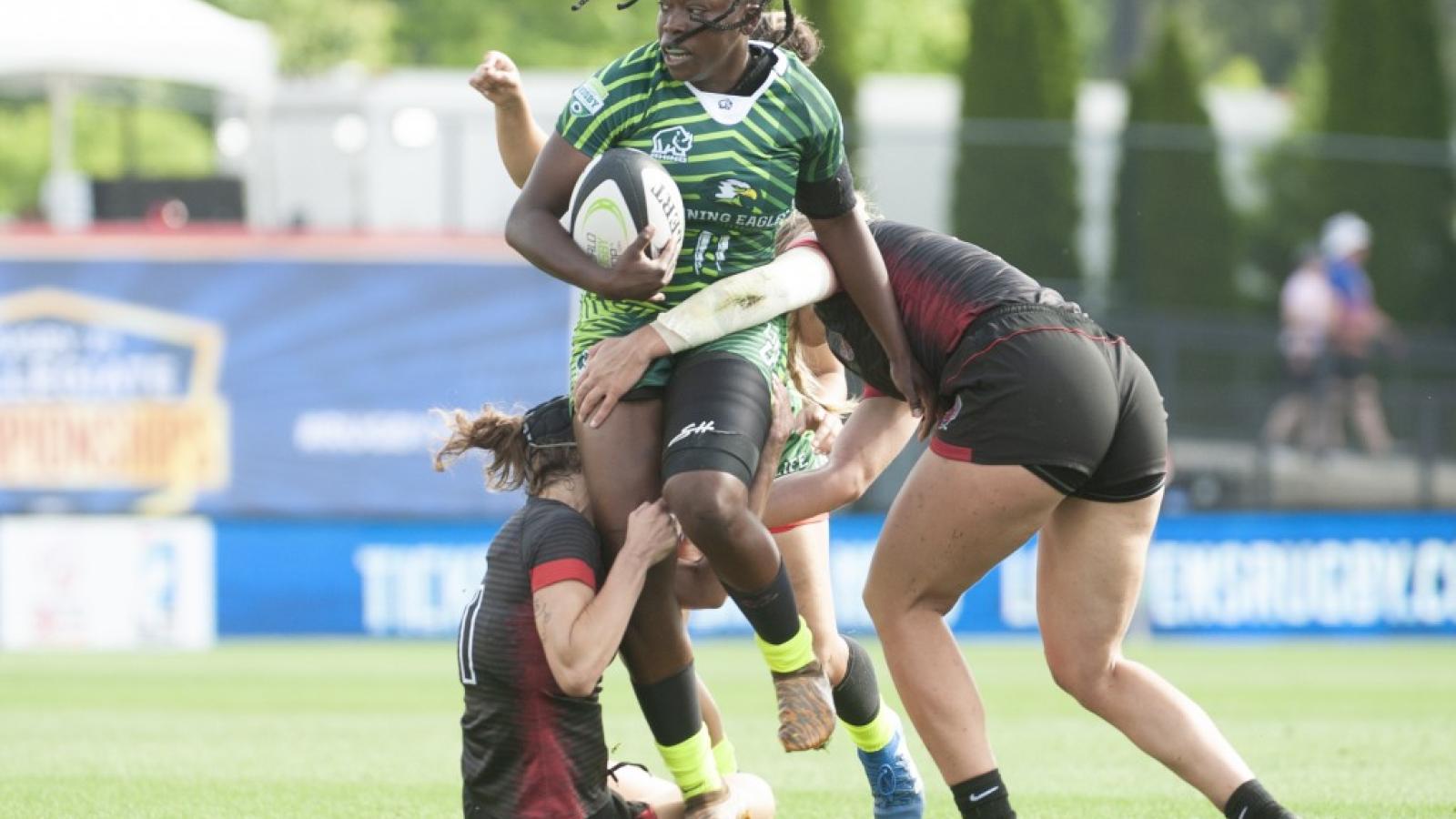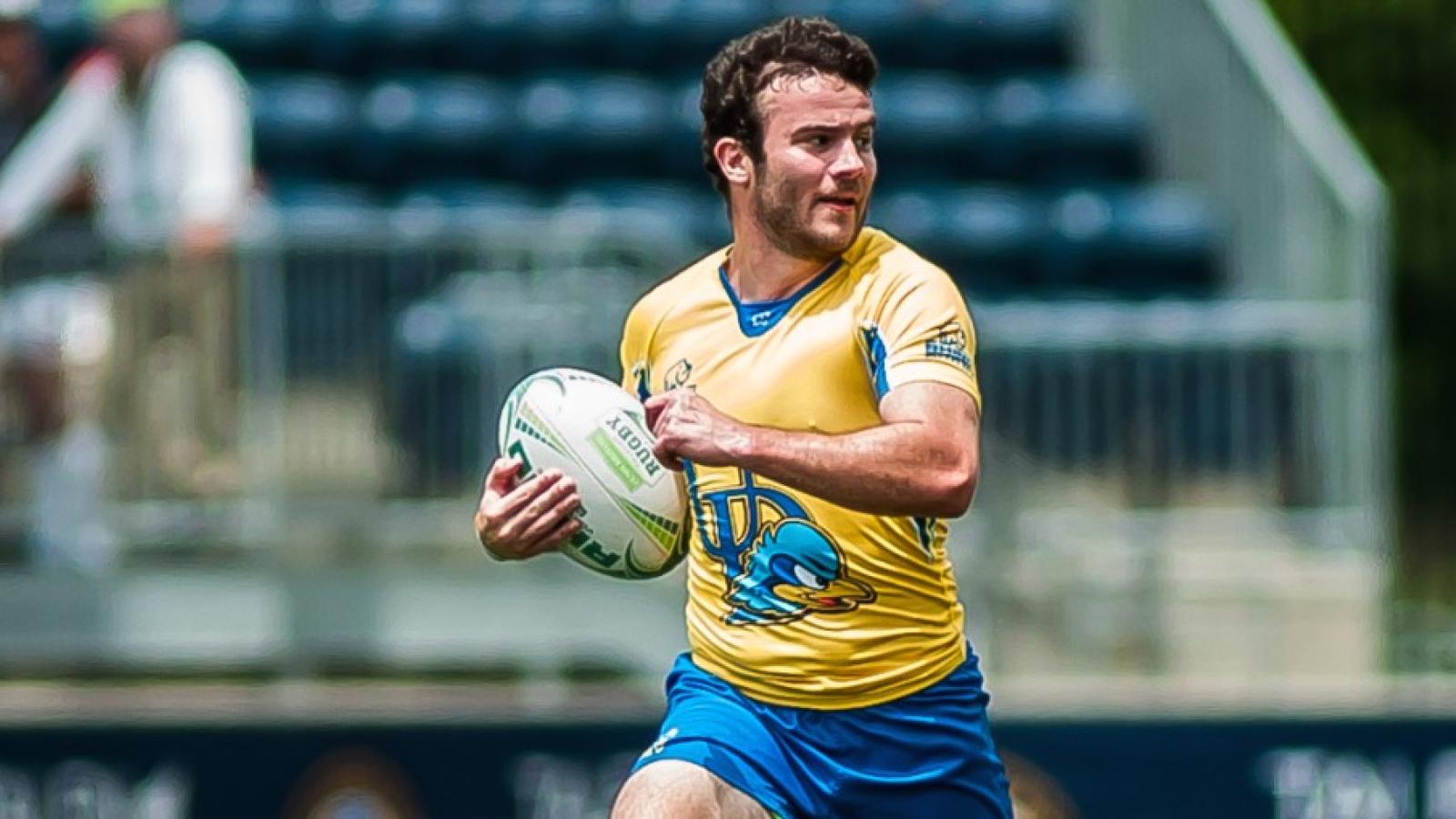Is there a trend away from 7s in college rugby?
In one sense, the answer to that question is: "obviously not." A huge number of D2 and Small College teams are playing 7s this spring, looking to compete in the CRC in the DC area (Germantown, Md.) at the end of April.
That isn't really changing much.
But elsewhere? Well, let's have a look:
1. Rugby East publishes the teams that have registered for their 7s tournaments. Two things about this. The first is that half of the Rugby East is formerly the Chesapeake Conference, and their commissioner is also from the Chesapeake. The Chesapeake annually held a series of tournaments, as many as five or six. So you'd think they would follow the same model. Instead, Rugby East has three tournaments.
The second thing is the teams that have registered. The first tournament of the season has six Rugby East teams registered, two of which are 2nd teams of teams already registered. The other six are from outside the conference. The second tournament has 12 teams registered, with all but one Rugby East—pretty robust, really. And final tournament has only nine teams registered so far of which only four are Rugby East 1st teams.
So the biggest (almost) and baddest conference in D1/D1A rugby is struggling to find teams to fill their tournaments.
2. Top-level women's teams, which have played their regular 15s seasons in the fall and crowned their champions, are not necessarily going full-on 7s. The NIRA NCAA teams are limited to the number of competition events they can do (a 7s tournament counts as one, and a 15s game counts as one) and of course the regular season takes priority.
Brown has scheduled a hybrid spring with a couple of 15s games sprinkled in. Dartmouth only has three 7s tournaments on their schedule, including the CRAA-USA Rugby-run championship in May, but their coaches have told GRR that they heavily value off-season 15s because it involves everyone and teaches skills 7s doesn't teach you.
Other NIRA teams seem to be playing more 7s (AIC, Davenport).
On the D1 Elite level, Lindenwood and Life both are playing as many 15s games as they are 7s tournaments. Basically their 7s season is the tournament at Life University in April, the Tropical 7s a week later, and the CRAA-USA Rugby championship in May.
3. Several major men's D1 teams are saying they are de-emphasizing 7s. What this means is that they don't want to spend three or four months playing only 7s because they don't feel it's the best way to develop their talent. And they also worry about playing time for younger players.
So you will see Mary Washington have only one 7s tournament on their schedule (and possibly they will play in the CRC, which makes two), while playing 15s with Mount St. Mary's, Guelph University (Canada), Queens University, Siena, Concordia, Kutztown, and Delaware. Including Kutztown in this schedule is interesting because Kutztown has been the banner-holder for D1 spring 7s.
4. The culmination of the 7s schedule has been brought forward. The CRC is now the last weekend in April, as opposed to the last weekend in May or even, when the CRC was run through United World Sports, in June.
The CRAA-run championship is held the first weekend of May. There are some very good reasons for this—the main one is to (duh) avoid finals and also because most college teams cannot stay on campus after the end of the semester and must find new accommodations and well as new places to practice. For major college teams who might get on NBC (old CRC model) staying on campus was possible. For lower-division teams it's not.
So now a college 7s season that might be March into June becomes March through April. With all of that in mind conferences are abbreviating their seasons, not holding buildup tournaments and just holding championships (SCRC for example, has just the one tournament, same for the Big Ten).
Some conferences are holding a series—Big Rivers, MARC—but that is much more common for the D2 and Small College groups.



























